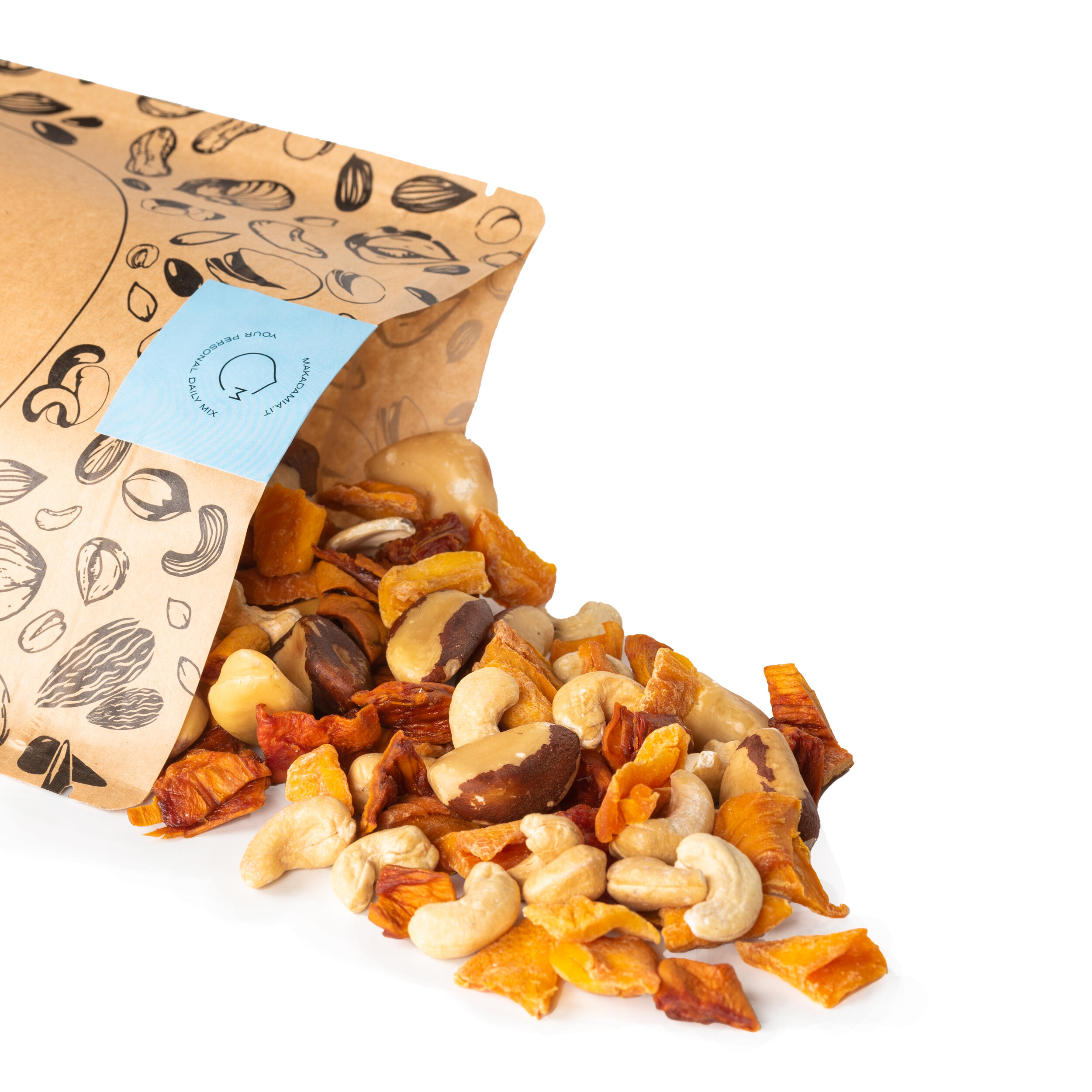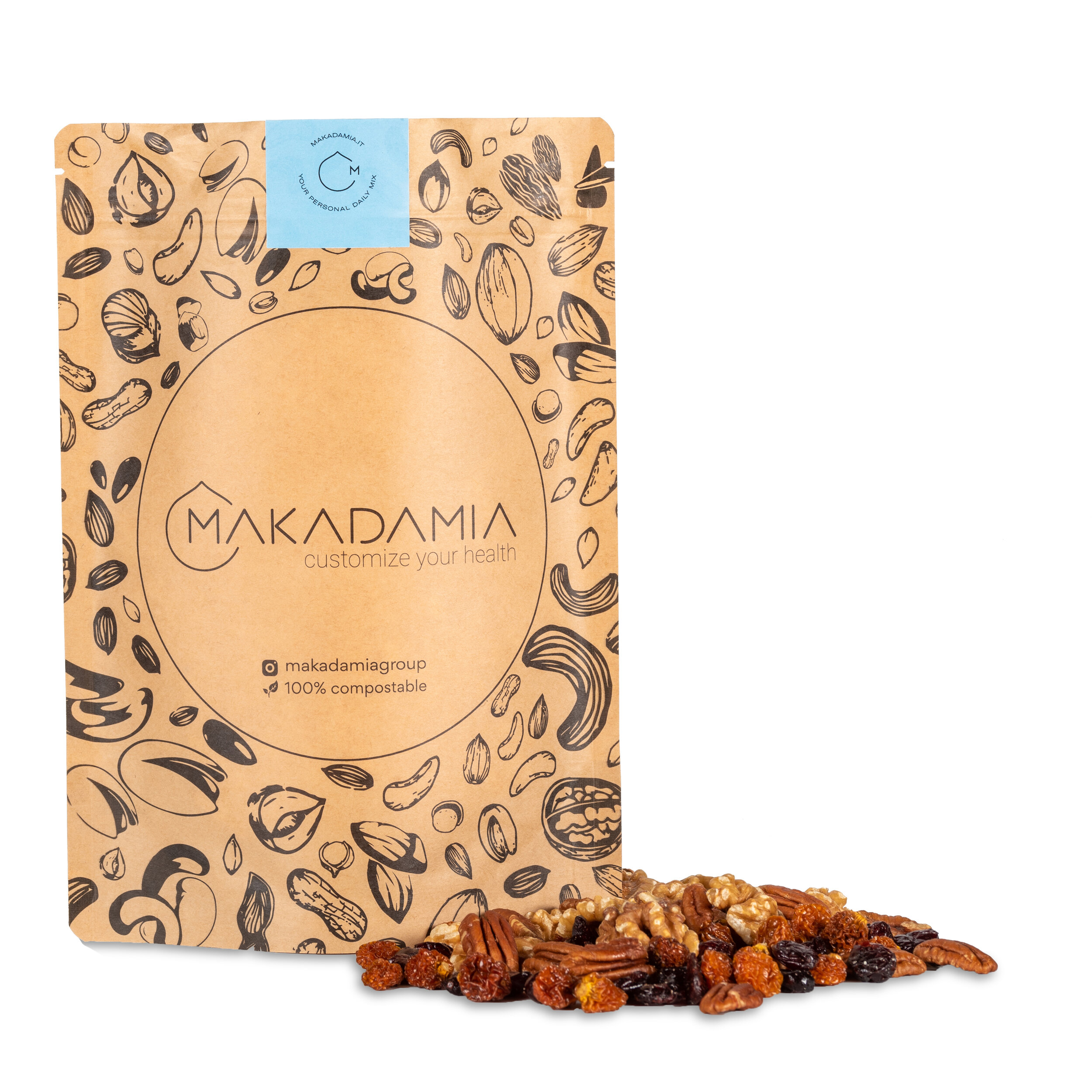Why Are Vitamins Essential For Our Well-being?
Vitamins are essential organic compounds that we all need in order to ensure correct body functions. Most vitamins come from food sources because our bodies produce too little of them, or do not produce them at all.
Vitamin requirements vary according to age, sex, body size, physical activity and state of health. Every organism has different vitamins requirements. Therefore, before taking vitamin supplements, we recommend to consult your general doctor to avoid any overdose.
Let's now take a look at the different types of vitamins that are important for our bodies, thanks to their fundamental roles and where to find them.
Vitamin A
Vitamin A plays an important role in our vision. A sufficient intake of vitamin A helps to reduce the risk of cataracts. It contributes to developing and keeping healthy skin and strong and shiny hair by stimulating cell renewal. Vitamin A enables the synthesis of melanin, that is responsible for skin pigmentation, protecting our skin from sun's rays. It is also fundamental for our immune system, as it is responsible for producing white blood cells and antibodies.
Where to find it?
Food Sources: carrots, pumpkins, sweet potatoes, tomatoes, spinach, broccoli, corn, lettuce, fennel, cabbage, watercress, squash, apricot, melon, mango, grapefruit, watermelon, blueberries, blackberries, raspberries, papaya.
Vitamin C
Vitamin C has an important antioxidant effect and thus, helps to protect our body from premature cell ageing. Vitamin C is involved in the production of collagen, an essential protein that contributes to the elasticity and strength of the skin, bones, muscles, cartilage and ligaments. A good intake of vitamin C helps to protect us against winter infections, boosting our immune system all year round.
WHERE TO FIND IT?
Food sources: red pepper, cabbage, broccoli, raw spinach, tomatoes, kiwi, orange, mango, pineapple, blackcurrant, strawberry, lychee, guava, lemons, clementine, pepper, parsley, chili pepper.
Vitamin D
Vitamin D is fundamental to have strong bones as it helps the body’s use of calcium from our diet. It therefore contributes to having good bone health. A good intake of vitamin D is optimal in preventing the risk of developing diabetes, Alzheimer's, Parkinson or autoimmune diseases.
Vitamin D is also known as the “vitamin of sunshine” as it is naturally produced by our bodies in response to skin sun exposure. About 15 minutes of sun exposure per day (face, forearms and hands) from spring to autumn covers the needs of most people.
WHERE TO FIND IT?
Food sources: carrots, pumpkin, sweet potatoes, mushrooms, broccoli, wild salmon, mackerel, eggs, shrimps, sardines, tofu, goat cheese avocado and peaches.
Vitamin B2
Vitamin B2 is involved in the production of energy and the use of various nutrients (proteins, carbohydrates, fats) by our body. It also plays a role in vision. It is involved in the production of keratin, a protein involved in keeping and developing good skin and hair health and mucous membranes.
WHERE TO FIND IT ?
Food Sources: avocado, almonds and nuts, whole grain products, green vegetables, eggs, cheese, tomatoes, cereals, milk, squash, cabbage.
Vitamin E
Vitamin E plays an antioxidant role and protects the body from the effects of free radicals. It also contributes to the prevention of cardiovascular diseases. In particular, it helps to protect cholesterol from oxidation: oxidised cholesterol plays an important role in cardiovascular risk.
WHERE TO FIND IT ?
Food sources: almonds, avocado, sunflower seeds, shrimps, Atlantic salmon, pine nuts, extra virgin olive oil, spinach, trouts, mango, blueberry, green cabbage, sorrel, pepper.
Vitamin K
Vitamin K is involved in blood coagulation helping to prevent haemorrhaging. It is essential for the proper functioning of the body's cells, as it is involved in their growth and survival.
WHERE TO FIND IT ?
Food sources: avocado, green apples, broccoli, spinach, asparagus, green beans, cabbage, kale, cucumber, celery, brussel sprouts, green grapes, kiwi, limes, arugula, artichokes, green pears, cucumber, green peas.
Magnesium
Magnesium is involved in bone health, immune system function, muscle transmission, stress reduction, blood sugar control, heart function and blood pressure. Magnesium plays a key role in brain functioning and mood regulating, reducing levels of anxiety and risk of developing depression.
WHERE TO FIND IT?
Food sources: passion fruit, banana, dark chocolate, almonds, broccoli, spinach, flax seeds, pumpkin seeds, brazil nuts, cacao, sesame seeds, sunflower seeds, coconut milk, cashews, avocado, black beans, tofu.
Potassium
Potassium is involved in many of the body's functions: it facilitates muscle contraction (including the heart), it participates in the transmission of nerve impulses and contributes to the proper functioning of the kidneys. It also plays an important role in maintaining the acid-base balance.
WHERE TO FIND IT?
Food sources: fennel, banana, spinach, pumpkin, cauliflower, pistachio nuts, peanut butter, peanuts, avocado, salmon, beans, potatoes, broccoli, sweet potatoes, tuna, cod, lentils, soy beans, brown and wild rice, whole-wheat bread, poultry, nuts, lima beans.
Zinc
Zinc is important for the growth and development of the body, the strengthening of the immune system, the good condition of the skin and hair and the stabilisation of hormones. It also has an anti-oxidant action: fighting against ageing and age-related diseases.
WHERE TO FIND IT ?
Food sources: cauliflower, broccoli, spinach, passion fruit, cereals, pumpkin seeds, nuts, sesame seeds, eggs, dark chocolate, yogurt, eggs, oats, brown rice, quinoa, chickpeas, sardines, salmon, sole, oysters, crab, lobster, turkey, chicken.
















